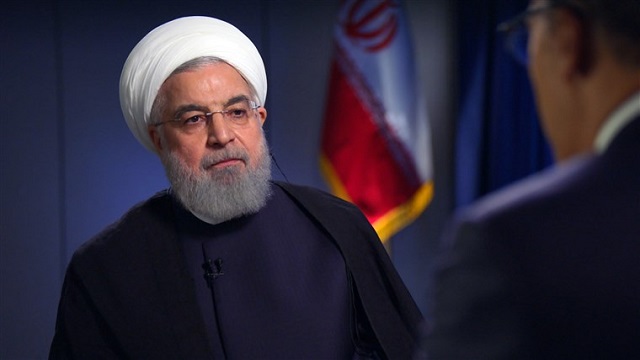
United Nations, United States | AFP | Will US President Donald Trump and Iranian President Hassan Rouhani finally hold a historic meeting during the UN General Assembly this week?
All eyes are on the pair in New York, where France’s Emmanuel Macron is cautiously hopeful for a breakthrough.
Building the suspense, Macron revealed that he consulted informally Monday with Trump, will see Rouhani on Monday evening, and will again see Trump on Tuesday.
“I’ll do everything I can so that conditions are created for discussion,” he told reporters.
Tehran and Washington have been at loggerheads since May last year when Trump abandoned a 2015 nuclear deal and began reimposing sanctions on Iran in a campaign of “maximum pressure.”
Following the Group of Seven summit in France in August, though, Trump spoke openly of his willingness to see his Iranian counterpart if the conditions were right.
Trump is fond of the optics of high-profile meetings — his summits with North Korea’s Kim Jong Un are testament to that — and a summit would mark a diplomatic coup a year ahead of his re-election bid.
He tempered his enthusiasm, though, after devastating September 14 attacks on Saudi oil installations that Washington and Riyadh have, to varying degrees, blamed on Tehran.
The attacks heightened tensions and renewed fears of a military escalation in the region.
“Did the chances of a meeting increase with these strikes? No, we have to be clear, we can see that things are getting tense,” Macron said Sunday en route to New York.
“The two main players are there”, he added, referring to the presence of Rouhani and Trump in New York. “Something can happen.”
Diplomats hope a meeting would help de-escalate tensions in the Gulf that have flared since May when the United States ended all waivers in its unilateral sanctions that seek to stop Iran from selling any oil.
Iran has responded by reducing its commitments under the nuclear deal and Trump has deployed military assets to the region.
The door to talks appears open, though. US Secretary of State Mike Pompeo, viewed as a hawk against Iran, has spoken of the need to give diplomacy “every opportunity to succeed” in the wake of the Saudi attacks.
– ‘Not closing the door’ –
There are signs of goodwill on the Iranian side, too. On the eve of the General Assembly, Iran said a British-flagged oil tanker seized in the Gulf two months ago was free to leave.
Iranian Foreign Minister Mohammad Javad Zarif, who met his French counterpart late Sunday, said that “we are not closing the door for conversation.”
“What we’re saying is that you need to establish credibility,” he told reporters at the United Nations, warning against simply “a photo opportunity” for Trump.
Macron is also scheduled to meet German Chancellor Angela Merkel and British Prime Minister Boris Johnson on Monday afternoon.
The three European countries remain part of the nuclear deal, negotiated under former US president Barack Obama, and are trying to salvage it.
The French leader said a rise in tensions would be a “strategic mistake” for the Iranians, the region and collective security.
– Different types of flexibility –
“The Iranians are flexible on the parameters but inflexible on the meeting which, in their eyes, should come only at the end of the process while the objective of the Americans is to have this meeting in the short term,” Macron said.
He said that if Trump became convinced he could get something from a meeting with Rouhani, he could decide to go ahead at very short notice.
“Nothing is ever off the table, completely, but I have no intention of meeting with Iran and that doesn’t mean it doesn’t happen,” Trump said Sunday.
“I’m a very flexible person, but we have no intention. It’s not set up,” he added.
A senior US official said no meeting was planned at this stage, even between lower level delegates.
Whether the meeting happens or not appears to be anyone’s guess.
 The Independent Uganda: You get the Truth we Pay the Price
The Independent Uganda: You get the Truth we Pay the Price





